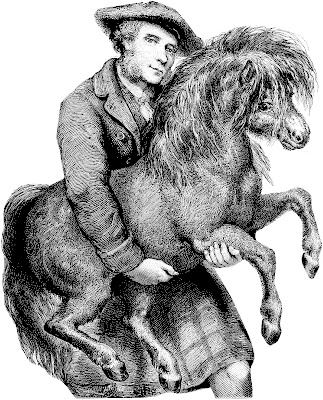Cathy was a short, slim, attractive, 42 year old brunette hippie in glasses who wore funny hats, a bit like Annie Hall.
We hooked up at the students’ pub of the university – where she was taking philosophy classes and I was booking bands – after having a passionate discussion about Arthur Schopenhauer’s values.
I argued that Schopenhauer brought misery to his own life because of his negative frame of mind, she insisted it was impossible because good old Arthur liked poodle dogs.
Arthur Schopenhauer (1788-1860) was a German philosopher whose pessimistic approach to life rendered his relationship with humankind difficult. He took solace in the company of poodle dogs. According to some, this led to tensions between the German and the French which provoked some of the bloodiest conflicts of the 19th and 20th centuries in Europe. Image: luigi diamanti / FreeDigitalPhotos.net
Cathy told me that, several months before, she had separated from her husband of 20 years. Together, they had two beautiful children, a boy, 12, and a girl, 9, who were the sunshine of her life.
However, we live in difficult times. Her ex-husband, Günther, a network administrator, had lost his job with a large computer hardware manufacturer that closed its doors shortly after the technology bubble burst.
He was now working – though for a more frugal income – with a smaller company that maintained data centres for local clients. He worked on call and often had to go on site at any hour of the day or night to fix technical problems.
Because of this, Cathy and Günther agreed to keep living in separate rooms in the family home until they found a purchaser. They would then divvy up the family’s estate to move on with their lives.
I am always impressed when people act in civilized ways despite life’s challenges.
One Wednesday morning after Cathy spent the night at my place, she found out her cell phone battery had run out. I suggested she used my phone to call the nanny at home, inquire about the children and make plans for the day.
After this was done, we had breakfast, grateful that life made our paths cross. Then, I walked her to her car, we kissed tenderly and promised to get in touch and see each other again before the weekend.
On Thursday, Cathy called saying that a cousin invited her and her children to spend a few days at a cottage on the slopes of a trendy ski resort. She would be back by Sunday and would be delighted if we could spend Sunday evening together.
As much as I value the virtue of negating desire, anytime a lovely lady is delighted to spend an evening with me, I am delighted too.
Later that night, I received another phone call:
— “May I speak to Cathy?”
Surprised to hear a man calling for Cathy at my place I asked to whom I was speaking.
— “This is Günther, her husband...”
There is nothing more exciting than receiving a call from your lover’s ex-husband.
A
husband whose wife cheats on him is said to be "wearing the horns" because, as a horn-bearing animal does not see the horns on its forehead, the cuckold does not see the infidelity of his mate while it is obvious to all. The shame of wearing the horns is not related to the unfaithfulness of your companion as much as to not knowing what everybody else does. Wearing the horns has always been quite common throughout human history. I've worn them, you probably have as well...
“I would appreciate if you keep away from my wife,” said Günther. “Do you enjoy breaking up couples and messing up their family life? Now, let me speak to Cathy, I know she’s there.”
As confused as I felt, I tried to explain that it was not the way things were, at least that was not the way Cathy explained her marital situation to me. I told him I had no affinity with the traditional backdoor man, in fact I kind of despised weak characters who went after married women.
There was a long silence at the end of the line, then I heard a painful sob: Günther was crying...
— “I know I could have done better,” he said, “I know it’s not a sufficient reason but I can make it up, I... I...” And he began to weep uncontrollably.
It’s always embarrassing to listen to a man cry especially since I felt somewhat responsible for his breakdown, yet I felt helpless.
I tried to explain again that it was an honest mistake on my part, that I would discuss the situation with Cathy next time I’d talk to her...
— “It’s useless,” he said, “without her, my life is over, I’d rather end it...”
Self-pity is the worst companion you can pick: I’ve seen its devastating effects. That’s why I worry when someone talks about hastily ending his or her days, especially when the future of young children is at stake.
So I said:
— “Listen, you’re upset, it’s understandable, but don’t do anything foolish. Let’s talk it out.”
And then, some crazy idea came to my mind:
— “Are you doing anything right now? How about coffee? You know that little café off Main Street? The
Bitter Cup? Let’s meet over there in, say, half an hour?”
Günther needed some convincing, but I finally got him to agree. I figured if I could get him up and out of the house to go somewhere else, maybe he would forget about his crazy ideas for awhile.
So we met at the café, he talked for a long time, I listened, and in the end I convinced him to postpone any harsh decision until I talked to Cathy.
Sunday afternoon, Cathy called on her way back to town. After the usual enquiries about the weekend, I said:
— “Cathy, we need to talk about Günther...”
I explained the phone call I got from her husband, the discussion we had, and his frame of mind.
— “The son of a bitch! He had no right to call you! How did he get your number?”
I told her he picked it up from the call display after she called home using my phone.
— “You should never have made me use your phone! What were you thinking? Do you understand what I will have to go through now because of your lack of judgment?”
— “Cathy, I...”
But it was too late, she had already hung up. I called back; her phone was off.
Around supper time, the phone rang; it was Günther.
— “May I speak to Cathy please?”
I told him Cathy wasn’t here.
— “She came in earlier, dropped the kids and left," said Günther. "She was furious and she’s not answering her phone. What happened?”
— “I don’t know, I lied, maybe she didn’t have a good weekend at her cousin’s cottage...”
— “Anyway, I have the kids now and I just got an emergency at one of the data centres. The nanny won’t be here until tomorrow morning. I don’t know what to do.”
I suggested he’d take the kids to relatives, friends or a neighbour.
— “We don’t have any relatives or friends in town and I don’t know any neighbours.”
And then, after a moment, he said:
— “I feel awkward to ask, but could you...”
The idea of babysitting the kids of the man who was cuckolded by me was not appealing, but then, what was I supposed to do given his depressed state of mind?
So I said: “Okay, bring the kids over, I’ll watch them tonight.”
Günther dropped the kids at my apartment.
I made popcorn, got out the Monopoly board, and we played the game of acquiring other people’s property, coveting assets, collecting wages every time we passed “Go”, and sometimes ending up in jail.
I watched the kids fall asleep on the couch and was relieved when Günther came to pick them up at 3:00 AM.
I never heard from Cathy nor Günther again.





























